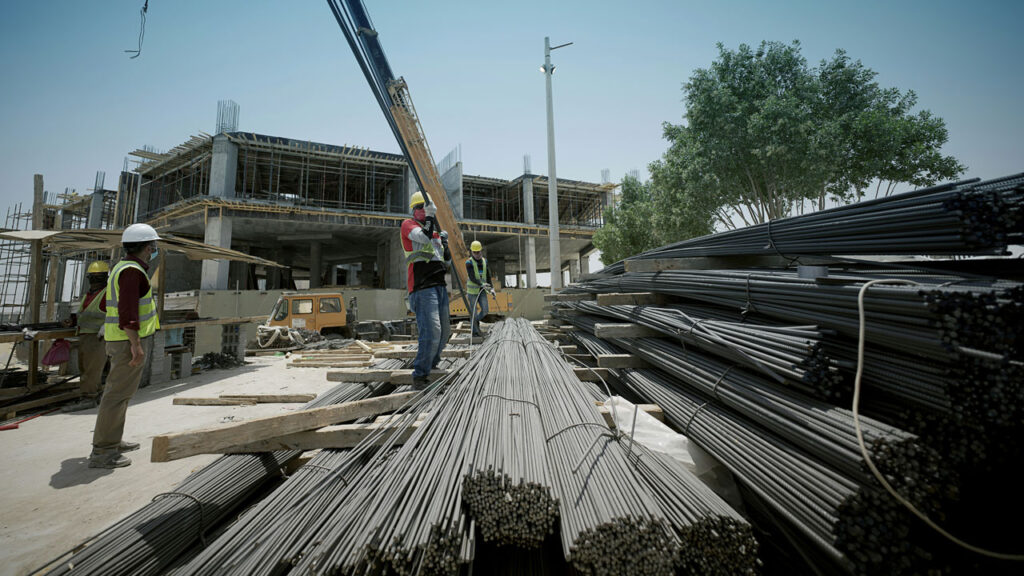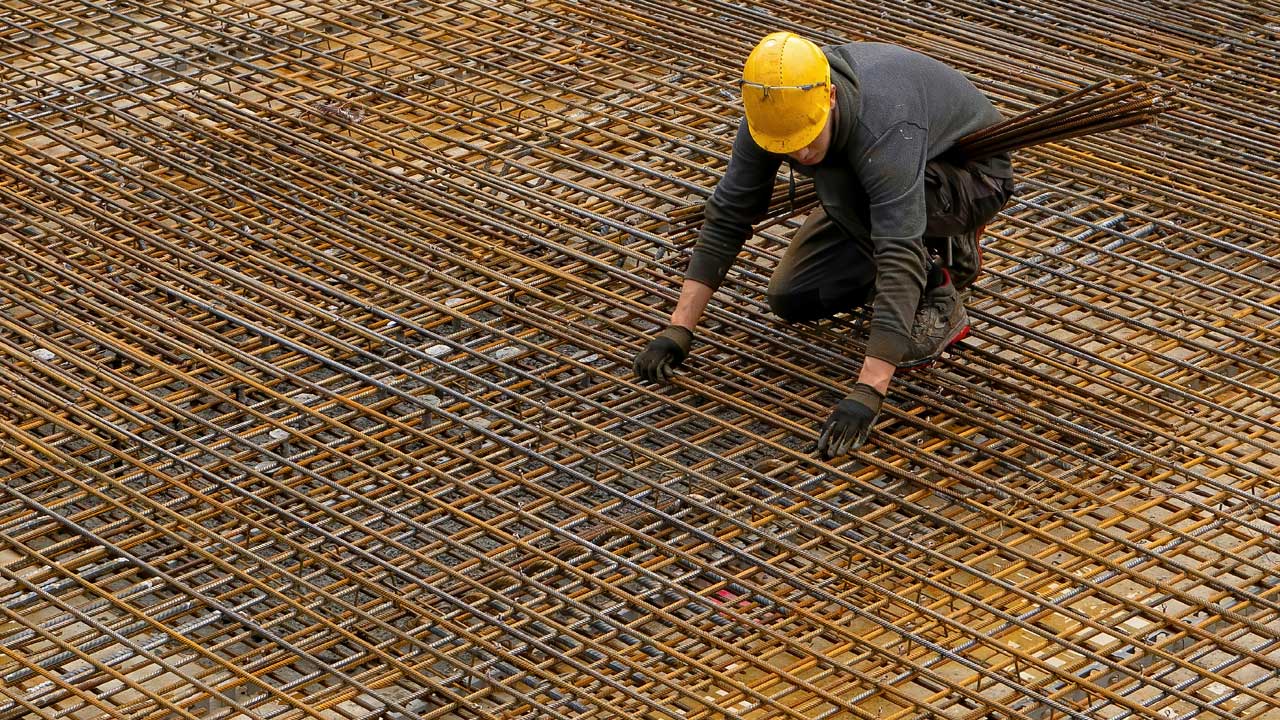A line of credit for construction companies can be a game-changer, since running a construction company means juggling multiple projects, managing tight budgets, and facing unexpected expenses. To keep operations smooth. This financial tool provides a flexible funding option that can be accessed as needed, offering a reliable cushion to cover payroll, purchase materials, or handle emergencies.
Unlike traditional loans, which can be cumbersome and rigid, lines of credit offer the agility and stability that construction businesses require to adapt to varying demands and unforeseen challenges. By leveraging a line of credit, you can maintain financial flexibility, ensuring that your projects continue to run smoothly even when unexpected costs arise. The ability to access construction credits might be crucial when managing unforeseen project changes or seasonal fluctuations. It’s an essential component for managing cash flow effectively and keeping your construction business on track.
What is a Construction Line of Credit for Construction Companies?
A construction line of credit gives your business access to flexible funding, allowing you to cover costs such as payroll, materials, and unexpected expenses with ease. Unlike traditional loans, which require a separate application for each withdrawal, a line of credit provides immediate access to funds whenever needed. This financial flexibility helps you manage cash flow efficiently and ensure that you can respond swiftly to both planned and unforeseen costs, keeping your construction projects on track and within budget.
What Is the Difference Between a Construction Loan and a Line of Credit for Construction Companies?
A construction loan provides a fixed amount of money for a specific project, released in increments, and must be repaid within a set period. The fund availability stops once the project ends. In contrast, a line of credit for construction companies offers a revolving pool of funds that you can access as needed, only paying interest on used amounts. It’s ideal for ongoing expenses across multiple projects rather than a single venture. Construction contractor credit remain available after repayment without needing to reapply.
How Can Equipment Financing Help My Construction Business?
Equipment financing allows you to acquire necessary machinery without a large upfront cost, preserving cash flow for other expenses. You can finance various types of equipment (e.g., bulldozers, cranes, excavators) through manageable monthly payments. Flexible terms mean you can upgrade older equipment, enhancing productivity and efficiency. This reduces downtime, boosting your project timelines and allowing you to take on more jobs, ultimately increasing profitability.

Does a line of credit for construction companies count as debt?
A line of credit for construction companies does count as debt because it represents borrowed money that must be repaid. However, it’s a type of debt that offers flexibility and can be a strategic tool for managing cash flow and funding multiple projects simultaneously. When used wisely, it can provide the financial stability needed to navigate the ups and downs of the construction industry. You can use this resource to your advantage and keep your construction company financially stable and competitive by learning how to manage it effectively.
Key Features to Look for in a Line of Credit for Construction Companies
When selecting a line of credit for construction companies, it’s crucial to consider features that can significantly impact your financial stability and project execution. Key aspects such as interest rates, credit limits, and repayment terms play a vital role in ensuring the line of credit for construction companies aligns with your needs and supports efficient project management.
Flexible Repayment Terms
Flexible repayment terms are crucial. Opt for a line with terms that align with your cash flow cycles. This flexibility helps you manage repayments effectively, preventing disruptions in project timelines.
Competitive Interest Rates
Aim for competitive interest rates. Low rates reduce the cost of borrowing, allowing you to allocate more funds to essential project expenses. Compare rates across multiple lenders to find the most cost-effective options.
Sufficient Credit Limit
Ensure that any line of credit for construction companies is sufficient to cover your operational needs. Evaluate past projects and estimate future requirements to set an appropriate limit. A higher limit provides a buffer, offering peace of mind during peak activity periods.
Easy Access to Funds
Easy access to funds is vital. Choose a line of credit for construction companies that allows for quick withdrawals via online platforms or mobile apps. Immediate access ensures you can address urgent expenses without delays, maintaining project momentum.
Minimal Fees and Charges
Look for minimal fees and charges. Select a line of credit with transparent fee structures to avoid unexpected costs. Typical fees include annual maintenance fees, transaction fees, or penalty fees for exceeding limits.
Revolving Credit Facility
A revolving credit facility offers continuous access to funds as you repay borrowed amounts. This feature is essential for ongoing construction projects where cash flow needs fluctuate frequently.
Collateral Requirements
Understand any collateral requirements. Some line of credit for construction companies require assets as collateral, while others offer unsecured options. Weigh the pros and cons of each to determine the best fit for your company’s risk profile.
Customer Support
Reliable customer support is imperative. Choose lenders known for responsive and knowledgeable support teams. Good customer service can assist in managing your lines of credit efficiently, especially during financial emergencies.
Evaluating these features is essential to selecting the most beneficial construction contractor credit for your construction company’s unique needs. Examining aspects such as interest rates, credit limits, and repayment terms helps ensure that the line of credit for construction companies you choose provides the financial flexibility and support necessary for effective project management. A well-suited line of credit can enhance your company’s financial stability, streamline cash flow, and help you navigate both planned and unforeseen expenses efficiently.
Top Lines of Credit for Construction Companies
When selecting a line of credit for your construction company, evaluating specific features is essential to ensure you find the most beneficial option for your unique needs. A line of credit for construction companies provides flexible funding, which can be crucial for managing the various financial demands of construction projects. Key features to consider include interest rates, credit limits, and repayment terms.
Interest rates can significantly impact the overall cost of borrowing, so it’s important to compare rates across different credits for construction. Look for competitive rates that align with your financial strategy. Credit limits should be sufficient to cover your anticipated expenses, including payroll, materials, and unexpected costs. Ensuring that the credit limit meets your needs will help maintain smooth operations without frequent interruptions.
Repayment terms are another critical factor. Favorable terms can offer more flexibility in managing cash flow and ensure that you’re not burdened with rigid payment schedules. By examining these features, you can select a line of credit that supports effective project management and financial stability.

For construction companies, options include traditional bank lines of credit, which often offer stability and reliability. Online lenders also provide accessible credits for construction, often with quicker approval processes. Additionally, government programs may offer special lines of credit for construction firms, potentially with lower interest rates or better terms. Specialized lenders focusing on the construction industry might offer tailored solutions that align closely with your specific needs.
Tips for Managing a Line of Credit for Construction Companies
Managing a line of credit efficiently is crucial for maintaining financial stability in your construction company. With the right approach, a line of credit for construction companies can provide the flexibility needed to handle various financial demands, from covering payroll to purchasing materials and addressing unexpected expenses. Proper management ensures you maximize the benefits of your credit line while avoiding pitfalls that could impact your company’s financial health and project success. Follow these tips:
Monitor Credit Utilization
Maintain awareness of your credit utilization. Keep usage below 30% of your available limit to improve your credit score and lower borrowing costs. Regularly review statements for discrepancies.
Maintain Detailed Records
Accurate record-keeping is essential. Track expenses covered by the lines of credit, categorizing them by project. Use accounting software to streamline this process, ensuring expenditures align with project budgets.
Plan Repayments Strategically
Develop a repayment plan. Schedule periodic repayments to avoid accruing high interest. Align repayment schedules with project cash flows to maintain liquidity.
Regularly Review Terms
Review the terms of your line of credit for construction companies agreement frequently. Stay informed about interest rate changes and fee structures. Renegotiate terms when necessary, particularly if your credit profile improves.
Use for Specific Needs
Allocate credits strategically. Use the line of credit for short-term needs rather than long-term investments. Cover costs like payroll, materials, and emergency expenses, avoiding use for fixed assets.
Build Relationships with Lenders
Build and maintain strong relationships with your lenders. Consistent, open communication can lead to more favorable terms, better support, and increased borrowing power.
Establish an Emergency Fund
Having an emergency fund can enhance liquidity. Reserve part of the line of credit for construction companies for unforeseen expenses, balancing it with readily available cash reserves.
Stay Informed About Market Conditions
Keeping up with market conditions is beneficial. Understand how shifts in the economic environment can affect your credit terms and interest rates, enabling adjustments to your financial strategies accordingly.
Utilizing these tips helps your construction company effectively manage lines of credit, ensuring continuous, sustainable project execution. Applying best practices for managing a line of credit for construction companies allows you to maintain optimal financial stability, avoid unnecessary costs, and ensure that funds are available when needed. This approach supports smooth operations, facilitates timely responses to unexpected expenses, and contributes to the overall success and growth of your construction projects.
Key Takeaways
- Flexible Funding: A line of credit for construction companies offers construction companies access to flexible funding for covering operational costs like payroll, materials, and emergencies without frequent loan applications.
- Difference from Construction Loan: Unlike a fixed-sum construction loan, a line of credit for construction companies provides a revolving pool of funds accessible as needed, only incurring interest on used amounts and remaining available after repayment.
- Key Features: Important features to consider for a line of credit for construction companies include flexible repayment terms, competitive interest rates, sufficient credit limits, easy fund access, minimal fees, revolving credit facility, collateral requirements, and reliable customer support.
- Management Tips: Effective management of a line of credit for construction companies involves monitoring credit utilization, maintaining detailed records, strategic repayment planning, regularly reviewing terms, using credit for specific needs, building relationships with lenders, establishing an emergency fund, and staying informed about market conditions.
Frequently Asked Questions
What is a line of credit for construction companies?
A line of credit for construction companies is a flexible funding option that provides construction companies with a revolving pool of funds to cover ongoing expenses across multiple projects. Unlike project-specific loans, it allows for continuous access to capital as needed.
How do construction credits differ from a construction loan?
A construction loan is project-specific and provides funding for a particular project, whereas credits for construction offers a revolving pool of funds that can be used for any expense across multiple projects, providing greater flexibility.
What are the benefits of a construction contractor credit?
The main benefits include flexible access to funds, the ability to manage cash flow effectively, and the opportunity to cover unexpected expenses. It also supports ongoing projects without the need for multiple loans.
What are some tips for managing a line of credit for construction companies?
Managing credits for construction involves monitoring credit utilization, maintaining detailed records, planning repayments strategically, reviewing credit terms regularly, and using the credit for specific needs. Building relationships with lenders and staying informed about market conditions are also crucial.
Why is it important to monitor credit utilization?
Monitoring credit utilization ensures that the construction company does not overextend itself. Keeping utilization at an optimal level can improve financial stability and prevent potential cash flow problems.
How can staying informed about market conditions benefit a construction company?
Staying informed about market conditions allows construction companies to make strategic financial decisions, adjust to economic changes, and plan for future projects. It helps in proactive management of finances and avoiding potential risks.


